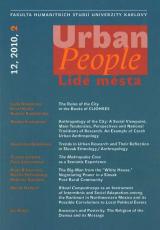Ancestors and Posterity
The Religion of the Domus and its Message
DOI:
https://doi.org/10.14712/12128112.3612Klíčová slova:
ancestor worship, home religion, procreation, heritage, patrilinearityAbstrakt
Ancestor worship has attracted the attention of many scholars, of ethnologists and anthropologists more than of scholars studying western religions or theologians. Its sometimes odd expressions have been treated in the West – with some exceptions – rather as curiosities without asking about their deeper meaning. In the following article, I do not pretend to make a comparison between various highly developed religions, which is clearly beyond my competence. I shall merely try to bring together some traces left by the religion of the domus or home religion, whose various forms ethnologists have described in numerous cultures all around the world, and to show ancestor worship as a part of this larger system of customs and convictions. This simple yet ingenious system of mutual obligations between generations efficiently formed human behavior for millennia and probably shaped many of our present-day views and institutions, too. However evidently obsolete in some of its expressions, it perhaps contains some very fundamental ideas about humans and their relations to the past and to the future that went into oblivion in modern western societies. However modern societies cannot be organized in separate lineages; a deeper look at this ancient framework of human lives might remind us about things lacking and perhaps urgently needed in contemporary and future societies.
Stahování
Publikováno
Jak citovat
Číslo
Sekce
Licence

Tato práce je licencována pod Mezinárodní licencí Creative Commons Attribution-NonCommercial-NoDerivatives 4.0.


